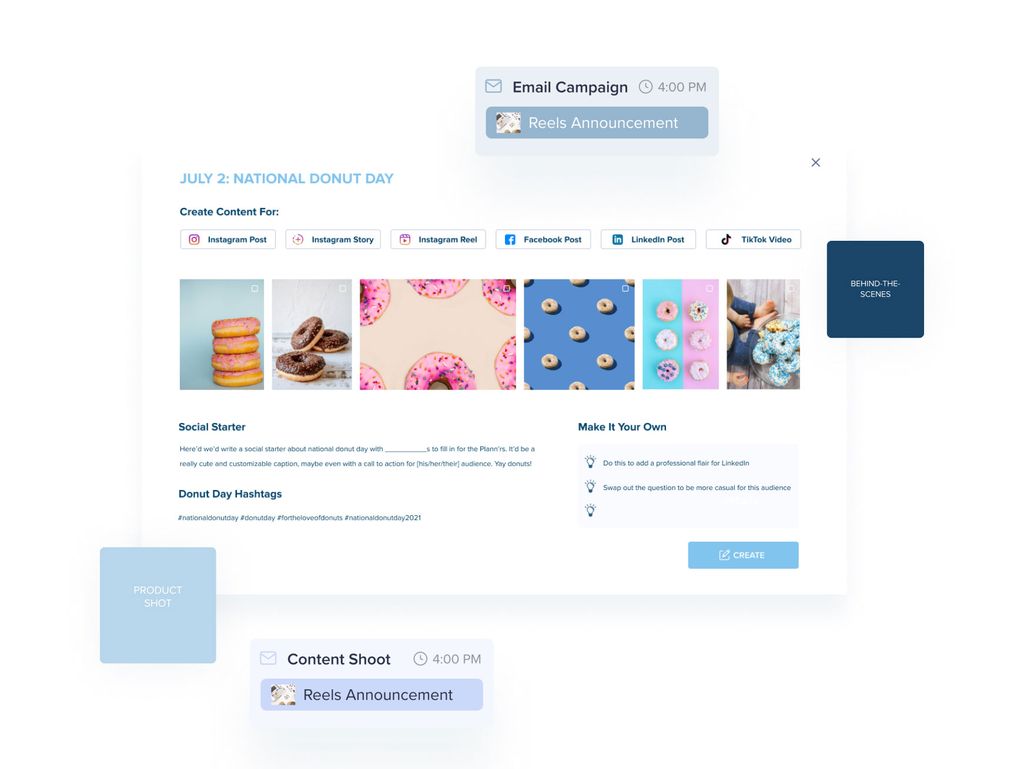
AI email tools have become essential for business founders in today's digital age. These tools offer a wide range of benefits, including enhanced productivity, automated email management, improved communication and response time, personalization and customization, and valuable data analysis and insights. Choosing the right AI email tool requires understanding your business needs, evaluating features and functionality, considering integration and compatibility, and assessing security and privacy measures. Implementing AI email tools in your business involves setting up and configuring the tool, training the AI model, monitoring and fine-tuning performance, and managing user access and permissions. However, there are challenges to overcome, such as addressing potential bias and misinterpretation, handling complex or sensitive emails, ensuring proper data handling and storage, and finding the right balance between automation and the human touch. By overcoming these challenges and maximizing the benefits, business founders can streamline their email management processes and improve overall efficiency.

AI email tools can significantly improve the productivity and efficiency of business founders. By automating repetitive tasks such as organizing and categorizing emails, these tools free up valuable time that can be better spent on strategic decision-making and business growth.
Additionally, AI email tools can help prioritize incoming emails based on their importance and urgency, allowing business founders to focus on the most critical messages first. This not only saves time but also ensures that important opportunities or issues are not missed.
Furthermore, these tools can provide insights and analytics on email usage patterns, allowing business founders to identify areas for improvement and optimize their email management strategies.
To summarize, AI email tools streamline email management processes, allowing business founders to work more efficiently and effectively.
Automating email management is a crucial aspect of using AI email tools for business founders. By automating repetitive tasks such as organizing, filtering, and prioritizing emails, founders can save valuable time and improve productivity. AI email tools can intelligently categorize emails based on predefined rules and keywords, ensuring that important messages are not missed. Additionally, these tools can automatically generate responses or suggest appropriate actions, further streamlining the email management process.
Improving communication and response time is crucial for business founders. With the help of AI email tools, businesses can streamline their communication processes and ensure timely responses to important emails. These tools use advanced algorithms to prioritize and categorize emails, making it easier for founders to identify and respond to urgent messages. By automating certain tasks, such as email sorting and filtering, AI email tools can save founders valuable time and allow them to focus on more strategic aspects of their business.
Personalization and customization are key features of AI email tools that allow business founders to tailor their email communication to individual recipients. With AI algorithms, these tools can analyze the preferences, behavior, and past interactions of each recipient to deliver personalized and relevant content. Customization options also enable business founders to create email templates, signatures, and branding that align with their company's identity and messaging.
In addition to personalization, AI email tools offer various features to enhance the user experience and productivity. Some of these features include:
Tip: Leverage the personalization and customization features of AI email tools to create tailored and impactful email communication that resonates with your recipients and strengthens your business relationships.
Data analysis plays a crucial role in AI email tools for business founders. By analyzing the data from email interactions, these tools can provide valuable insights and help make informed decisions. Data analysis allows businesses to identify patterns, trends, and correlations in email communication, which can be used to improve various aspects of the business. Whether it's understanding customer preferences, optimizing email campaigns, or identifying potential issues, data analysis provides the foundation for data-driven decision-making.

Before choosing an AI email tool for your business, it is important to understand your specific needs and requirements. Consider the following factors:
When evaluating features and functionality of AI email tools, it is important to consider several factors. One key factor is the ability of the tool to handle a large volume of emails efficiently. Another important consideration is the tool's ability to accurately categorize and prioritize emails based on their importance. Additionally, it is crucial to assess the tool's integration capabilities with other software and platforms used in your business. Compatibility with existing systems can greatly enhance the overall efficiency and effectiveness of the tool.
In terms of features, a table can be used to compare different tools based on their functionalities. This allows for a quick and easy comparison of the key features offered by each tool. Alternatively, a bulleted list can be used to highlight the important features and functionalities of the tool.
Tip: When evaluating features and functionality, consider the specific needs and requirements of your business to ensure the chosen AI email tool aligns with your goals and objectives.
When choosing an AI email tool for your business, it is crucial to consider its integration and compatibility with your existing systems and workflows. Seamless integration with your email client, CRM software, and other tools can greatly enhance the efficiency and effectiveness of the tool. It allows for automated syncing of data, streamlined processes, and a unified view of your communication. Compatibility with different email providers and platforms ensures that the tool can be easily adopted and used across your organization. Additionally, API support and customization options enable you to tailor the tool to fit your specific needs and requirements.
When evaluating AI email tools for your business, it is crucial to assess the security and privacy measures implemented by the tool. Data security should be a top priority to ensure the protection of sensitive information.
One way to assess the security measures is to look for end-to-end encryption. This ensures that the data transmitted between the tool and the email server is encrypted and cannot be intercepted by unauthorized parties.
Additionally, it is important to consider the data privacy policies of the AI email tool provider. Make sure they have clear policies in place regarding the collection, storage, and usage of data. Anonymization of data can also be an important factor to consider, especially if your business deals with sensitive customer information.
To help you evaluate the security and privacy measures of different AI email tools, here is a table summarizing the key features:
Remember, choosing an AI email tool with robust security and privacy measures is essential for the protection of your business and customer data.

Setting up and configuring the AI email tool is a crucial step in integrating it into your business workflow. This process involves installing the necessary software, connecting the tool to your email accounts, and customizing the settings according to your preferences. Here are the key steps to follow:
Once the tool is set up and configured, it is ready to assist you in managing your email efficiently and effectively.
Training the AI model is a crucial step in implementing an AI email tool for your business. During this process, the AI algorithm learns from a large dataset of emails to understand patterns, language, and context. It is important to provide the AI model with diverse and representative data to ensure accurate and reliable results. Additionally, continuous training and fine-tuning of the model are necessary to improve its performance over time.
Monitoring and fine-tuning the performance of your AI email tool is crucial to ensure optimal results. By regularly monitoring the tool's performance, you can identify any issues or areas for improvement. This allows you to make necessary adjustments and fine-tune the tool to better meet your business needs. Additionally, monitoring the performance helps you track the effectiveness of the AI model and its ability to accurately analyze and respond to emails. It also enables you to assess the tool's efficiency in terms of response time and overall productivity.
When implementing AI email tools in your business, it is crucial to properly manage user access and permissions. This ensures that only authorized individuals have access to sensitive information and can perform necessary actions. Here are some best practices for managing user access and permissions:
By following these practices, you can enhance the security of your AI email tool and protect your business's sensitive information.

Addressing potential bias and misinterpretation is crucial when implementing AI email tools. While AI algorithms are designed to analyze and interpret data, they can still be influenced by biases present in the training data. It is important to regularly monitor the tool's performance and fine-tune the algorithms to minimize bias.
To address potential bias and misinterpretation, consider the following:
Diverse Training Data: Ensure that the training data used for the AI model is diverse and representative of different demographics and perspectives. This can help reduce the risk of bias and improve the accuracy of the tool.
Regular Auditing: Conduct regular audits of the tool's outputs to identify any potential biases or misinterpretations. This can involve reviewing sample emails and assessing whether the tool's responses align with the intended goals.
User Feedback: Encourage users to provide feedback on the tool's performance. This can help identify any biases or misinterpretations that may have been missed during the auditing process.
Continuous Improvement: Continuously update and improve the AI model to address any biases or misinterpretations that are identified. This can involve retraining the model with new data or adjusting the algorithms to improve accuracy and reduce bias.
Addressing potential bias and misinterpretation is an ongoing process that requires vigilance and proactive measures. By taking these steps, business founders can ensure that their AI email tool operates in a fair and unbiased manner, providing accurate and reliable results.
Handling complex or sensitive emails requires a careful approach to ensure the privacy and security of the information exchanged. It is important to prioritize the following steps:
Proper data handling and storage are crucial when implementing AI email tools in your business. Data security should be a top priority to protect sensitive information and maintain customer trust. It is important to ensure that the AI email tool complies with relevant data protection regulations and follows best practices for data encryption and storage. Regular backups and disaster recovery plans should also be in place to prevent data loss and minimize downtime.
While AI email tools can greatly automate and streamline email management, it is important to strike a balance between automation and the human touch. Automation can handle routine tasks, such as organizing emails, filtering spam, and generating responses. However, it is crucial to remember that personalized and empathetic communication is often best delivered by a human.
To ensure a successful implementation of AI email tools, consider the following:
By finding the right balance between automation and human intervention, businesses can leverage AI email tools to enhance productivity while still delivering personalized and meaningful communication.
In conclusion, the AI Email Tool for Business Founders is a game-changer in the world of communication. With its advanced algorithms and natural language processing capabilities, it streamlines the email writing process and saves valuable time for busy entrepreneurs. By automating repetitive tasks and providing personalized suggestions, the tool empowers business founders to focus on more strategic activities. Efficiency is the key benefit of this tool, allowing founders to communicate effectively and efficiently with their stakeholders. Innovation and productivity are the driving forces behind the development of this tool, making it an essential asset for any business founder.
AI email tools can automate repetitive tasks, prioritize emails, and provide smart suggestions, saving time and increasing productivity.
Automating email management with AI can help organize and categorize emails, filter spam, and ensure timely responses, improving overall efficiency.
AI email tools can analyze email content, understand context, and suggest appropriate responses, enabling faster and more effective communication.
Yes, AI email tools can learn from past interactions and personalize email responses based on individual preferences, creating a more tailored experience.
AI email tools can analyze email patterns, extract valuable data, and provide insights on email performance, customer behavior, and trends.
When choosing an AI email tool, it is important to consider your business needs, evaluate features and functionality, assess integration and compatibility, and ensure security and privacy measures.